Stephanie M. Carpenter
Counterfactual Modeling with Fine-Tuned LLMs for Health Intervention Design and Sensor Data Augmentation
Jan 21, 2026Abstract:Counterfactual explanations (CFEs) provide human-centric interpretability by identifying the minimal, actionable changes required to alter a machine learning model's prediction. Therefore, CFs can be used as (i) interventions for abnormality prevention and (ii) augmented data for training robust models. We conduct a comprehensive evaluation of CF generation using large language models (LLMs), including GPT-4 (zero-shot and few-shot) and two open-source models-BioMistral-7B and LLaMA-3.1-8B, in both pretrained and fine-tuned configurations. Using the multimodal AI-READI clinical dataset, we assess CFs across three dimensions: intervention quality, feature diversity, and augmentation effectiveness. Fine-tuned LLMs, particularly LLaMA-3.1-8B, produce CFs with high plausibility (up to 99%), strong validity (up to 0.99), and realistic, behaviorally modifiable feature adjustments. When used for data augmentation under controlled label-scarcity settings, LLM-generated CFs substantially restore classifier performance, yielding an average 20% F1 recovery across three scarcity scenarios. Compared with optimization-based baselines such as DiCE, CFNOW, and NICE, LLMs offer a flexible, model-agnostic approach that generates more clinically actionable and semantically coherent counterfactuals. Overall, this work demonstrates the promise of LLM-driven counterfactuals for both interpretable intervention design and data-efficient model training in sensor-based digital health. Impact: SenseCF fine-tunes an LLM to generate valid, representative counterfactual explanations and supplement minority class in an imbalanced dataset for improving model training and boosting model robustness and predictive performance
NutriGen: Personalized Meal Plan Generator Leveraging Large Language Models to Enhance Dietary and Nutritional Adherence
Feb 28, 2025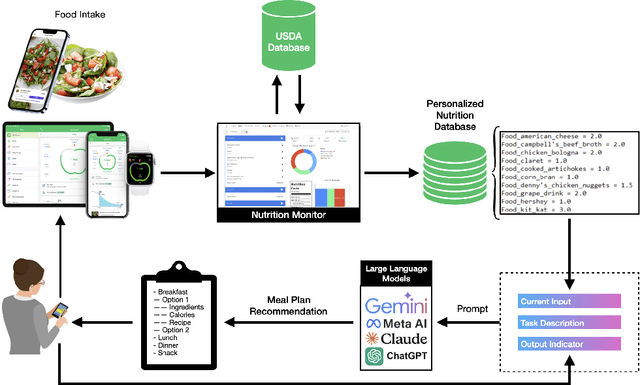
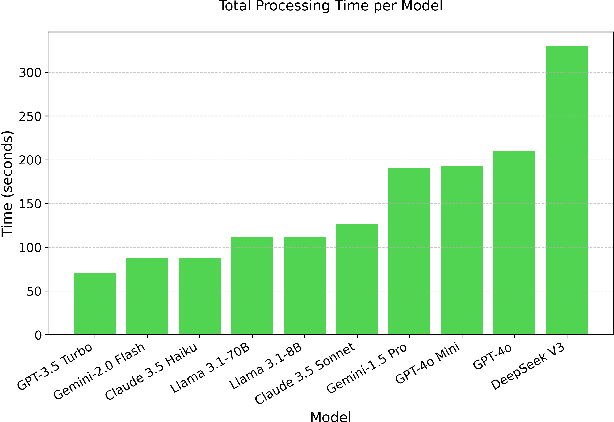
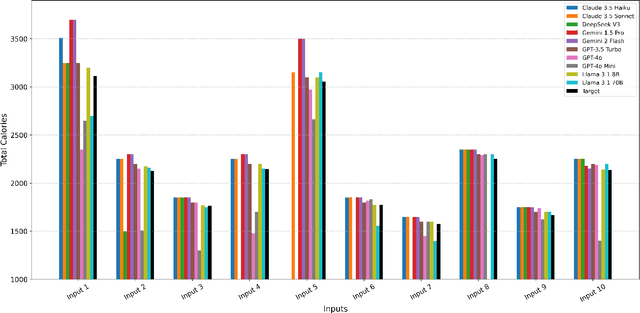

Abstract:Maintaining a balanced diet is essential for overall health, yet many individuals struggle with meal planning due to nutritional complexity, time constraints, and lack of dietary knowledge. Personalized food recommendations can help address these challenges by tailoring meal plans to individual preferences, habits, and dietary restrictions. However, existing dietary recommendation systems often lack adaptability, fail to consider real-world constraints such as food ingredient availability, and require extensive user input, making them impractical for sustainable and scalable daily use. To address these limitations, we introduce NutriGen, a framework based on large language models (LLM) designed to generate personalized meal plans that align with user-defined dietary preferences and constraints. By building a personalized nutrition database and leveraging prompt engineering, our approach enables LLMs to incorporate reliable nutritional references like the USDA nutrition database while maintaining flexibility and ease-of-use. We demonstrate that LLMs have strong potential in generating accurate and user-friendly food recommendations, addressing key limitations in existing dietary recommendation systems by providing structured, practical, and scalable meal plans. Our evaluation shows that Llama 3.1 8B and GPT-3.5 Turbo achieve the lowest percentage errors of 1.55\% and 3.68\%, respectively, producing meal plans that closely align with user-defined caloric targets while minimizing deviation and improving precision. Additionally, we compared the performance of DeepSeek V3 against several established models to evaluate its potential in personalized nutrition planning.
Oralytics Reinforcement Learning Algorithm
Jun 19, 2024



Abstract:Dental disease is still one of the most common chronic diseases in the United States. While dental disease is preventable through healthy oral self-care behaviors (OSCB), this basic behavior is not consistently practiced. We have developed Oralytics, an online, reinforcement learning (RL) algorithm that optimizes the delivery of personalized intervention prompts to improve OSCB. In this paper, we offer a full overview of algorithm design decisions made using prior data, domain expertise, and experiments in a simulation test bed. The finalized RL algorithm was deployed in the Oralytics clinical trial, conducted from fall 2023 to summer 2024.
Transformers for prompt-level EMA non-response prediction
Nov 01, 2021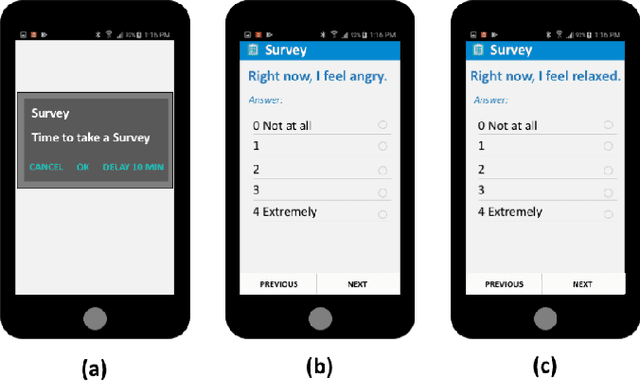
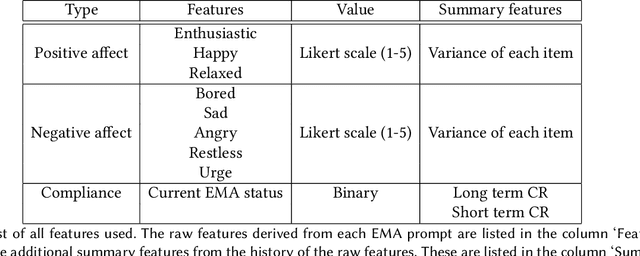
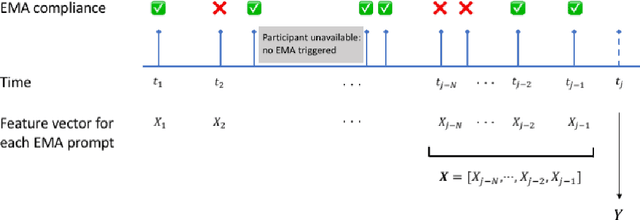

Abstract:Ecological Momentary Assessments (EMAs) are an important psychological data source for measuring current cognitive states, affect, behavior, and environmental factors from participants in mobile health (mHealth) studies and treatment programs. Non-response, in which participants fail to respond to EMA prompts, is an endemic problem. The ability to accurately predict non-response could be utilized to improve EMA delivery and develop compliance interventions. Prior work has explored classical machine learning models for predicting non-response. However, as increasingly large EMA datasets become available, there is the potential to leverage deep learning models that have been effective in other fields. Recently, transformer models have shown state-of-the-art performance in NLP and other domains. This work is the first to explore the use of transformers for EMA data analysis. We address three key questions in applying transformers to EMA data: 1. Input representation, 2. encoding temporal information, 3. utility of pre-training on improving downstream prediction task performance. The transformer model achieves a non-response prediction AUC of 0.77 and is significantly better than classical ML and LSTM-based deep learning models. We will make our a predictive model trained on a corpus of 40K EMA samples freely-available to the research community, in order to facilitate the development of future transformer-based EMA analysis works.
 Add to Chrome
Add to Chrome Add to Firefox
Add to Firefox Add to Edge
Add to Edge